Breakfast doesn't get much easier than these super quick microwave scrambled eggs. Mix the eggs in a bowl or a mug, microwave them for 1.5 minutes, and breakfast is served!
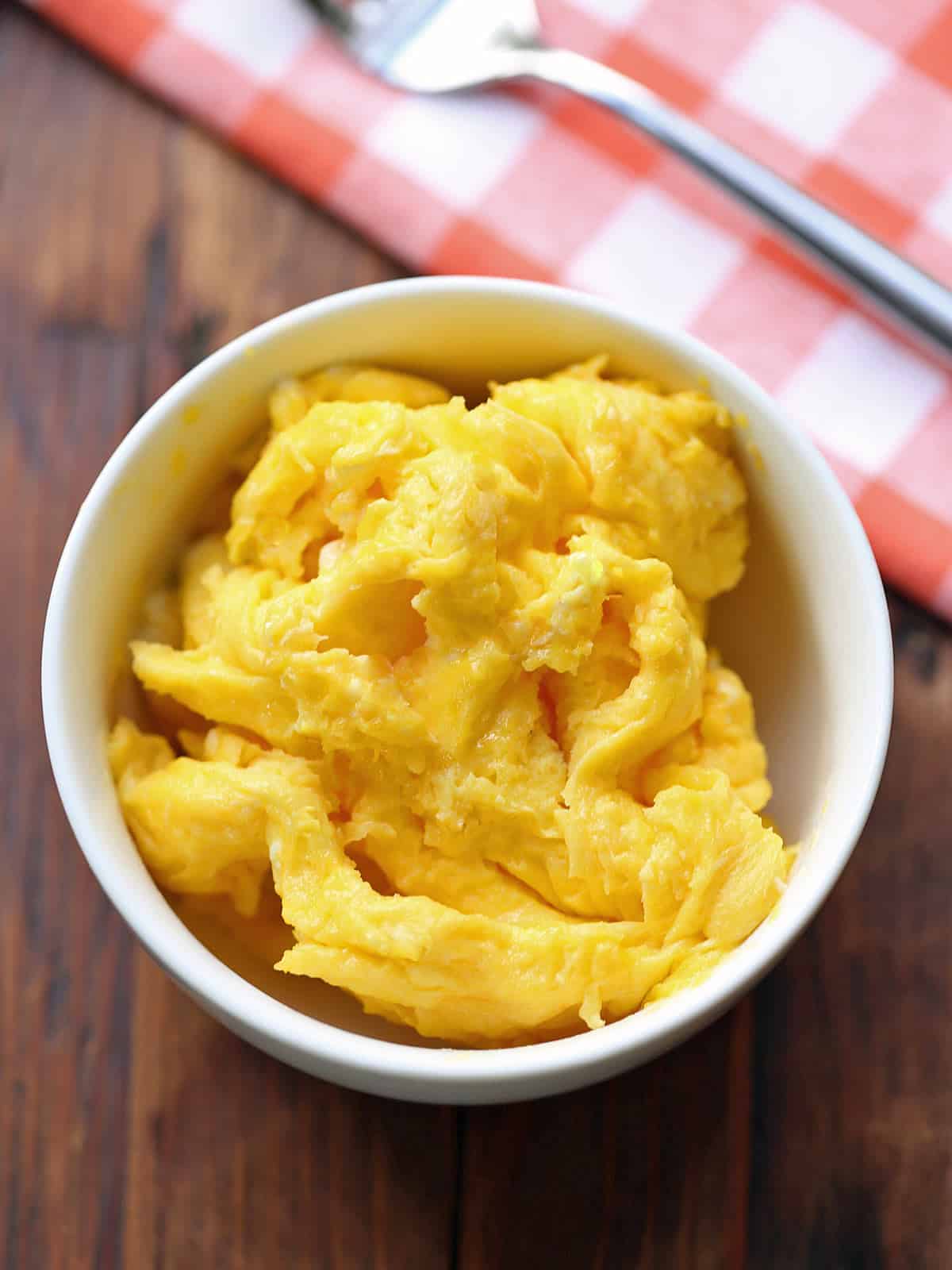
This recipe is so easy! It's not that scrambling eggs in a skillet is difficult - making fluffy scrambled eggs is easy. But cooking eggs in the microwave takes "easy" to a new level. It's faster, and there are fewer dishes to wash. Just one bowl and a fork. Add microwave bacon, leftover oven-baked bacon, or almond flour biscuits, and you're all set!
Ingredients and Variations
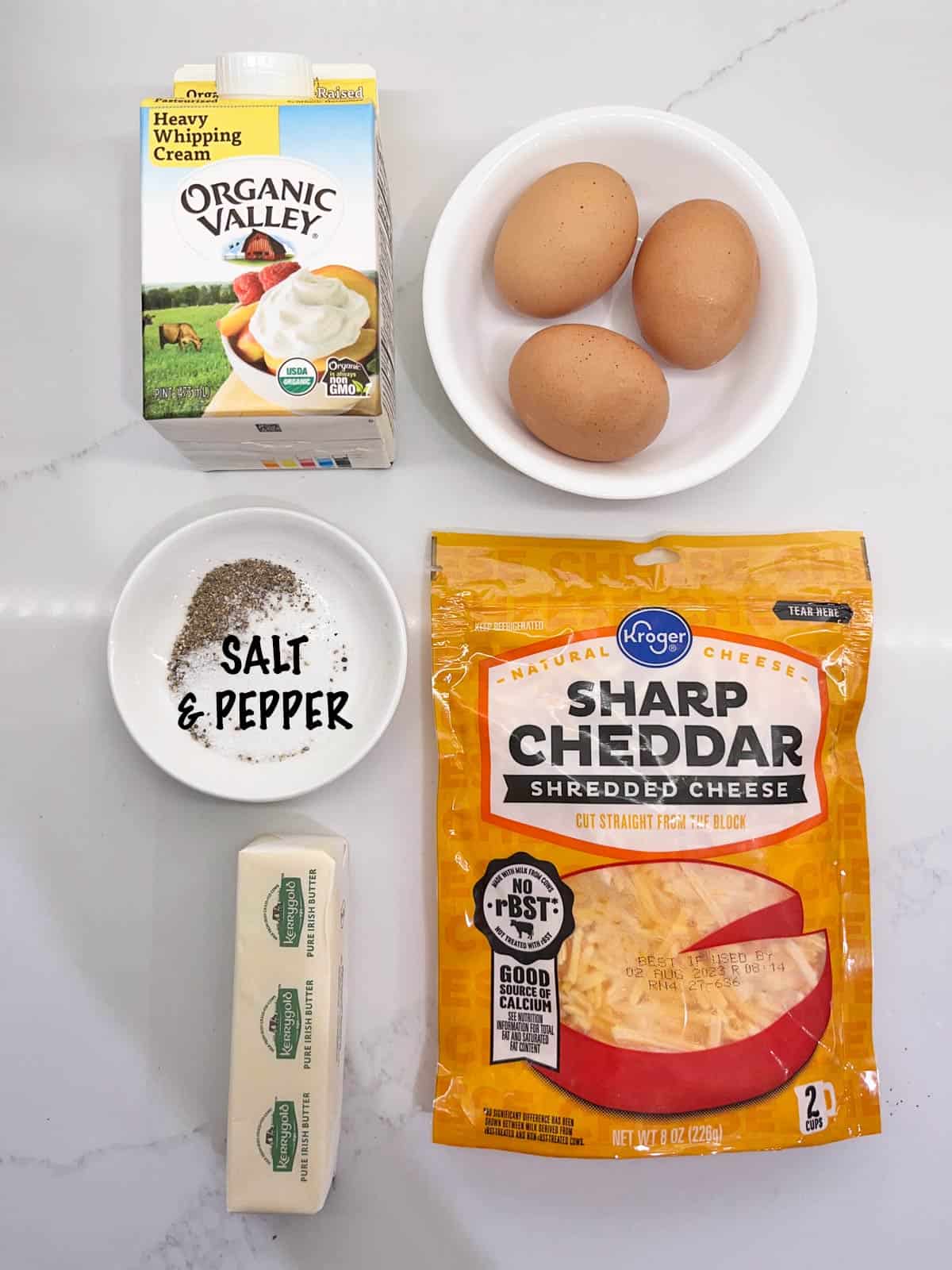
See the recipe card for exact measurements. Here are my comments on some of the ingredients.
- Butter: Salted or unsalted. You can use ghee instead of butter. It adds a nice nutty flavor.
- Milk: The milk keeps the eggs moist and helps prevent them from drying out. Whole milk is best.
- Seasonings: Salt and pepper. You can add more seasonings, such as garlic powder or red pepper flakes. You can add a pinch of each.
- Shredded cheddar: You can shred your own cheese or use pre-shredded cheese. I prefer extra-sharp cheddar. Other cheeses that work well in this recipe are Gruyere and Gouda.
Instructions
See the recipe card for exact measurements. Here are my comments on some of the ingredients.
Melt the butter in a small microwave-safe bowl. Add the eggs, milk, salt, and pepper. Whisk to combine.
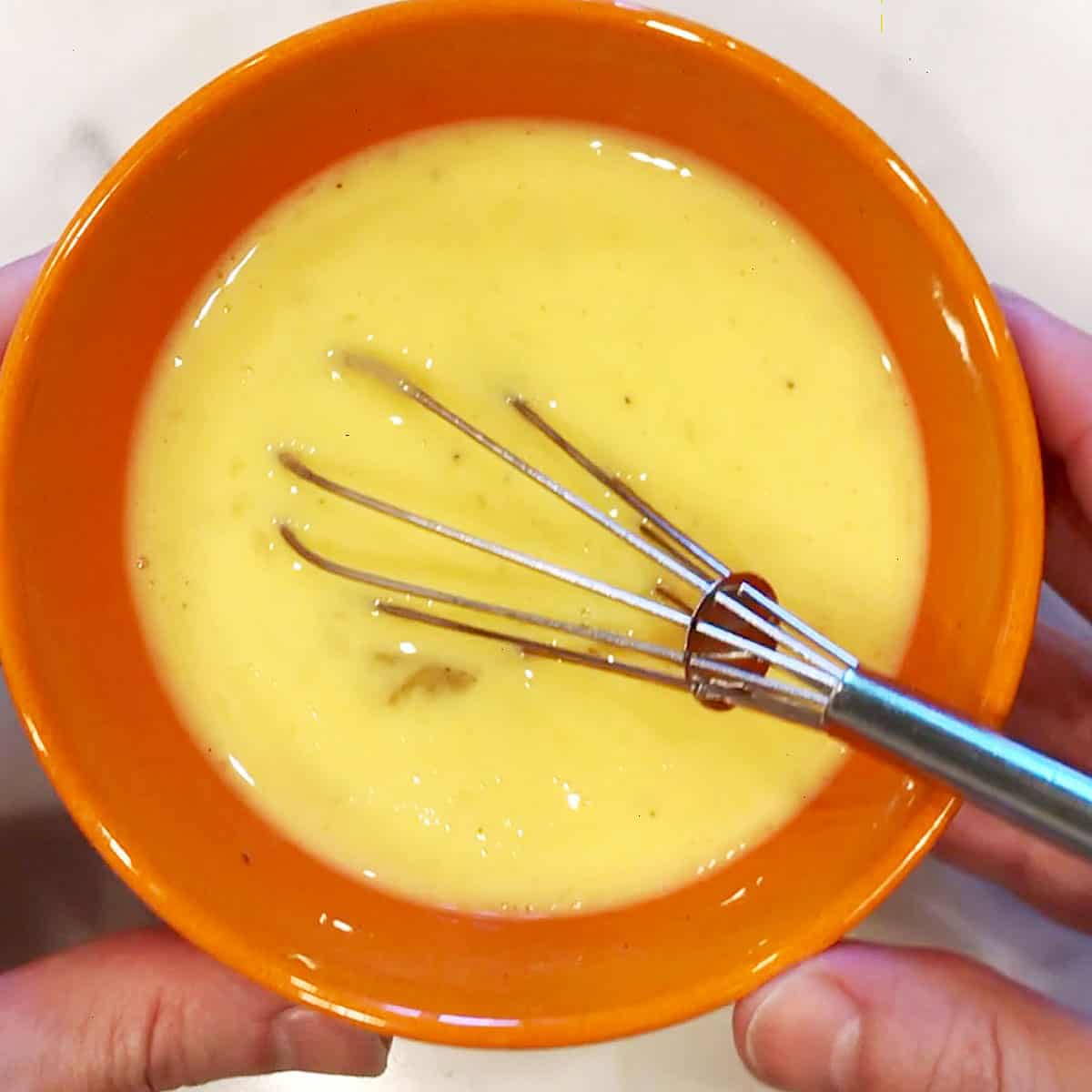
Microwave the mixture for 45 seconds. The eggs won't be fully cooked at this point. Gently stir them, then mix in the cheese if you're using it.
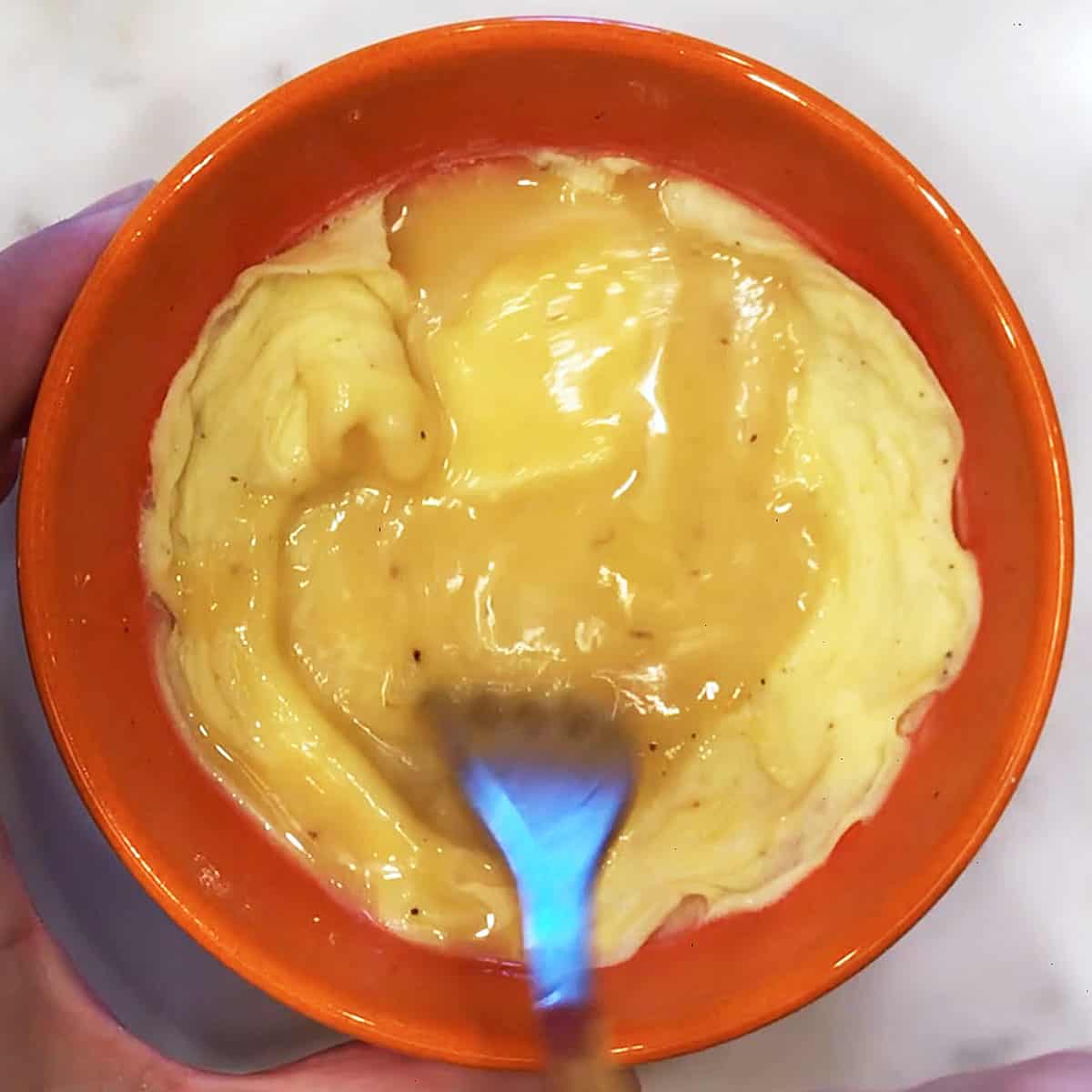
Microwave the eggs for 45 more seconds. That's it! Breakfast is ready.
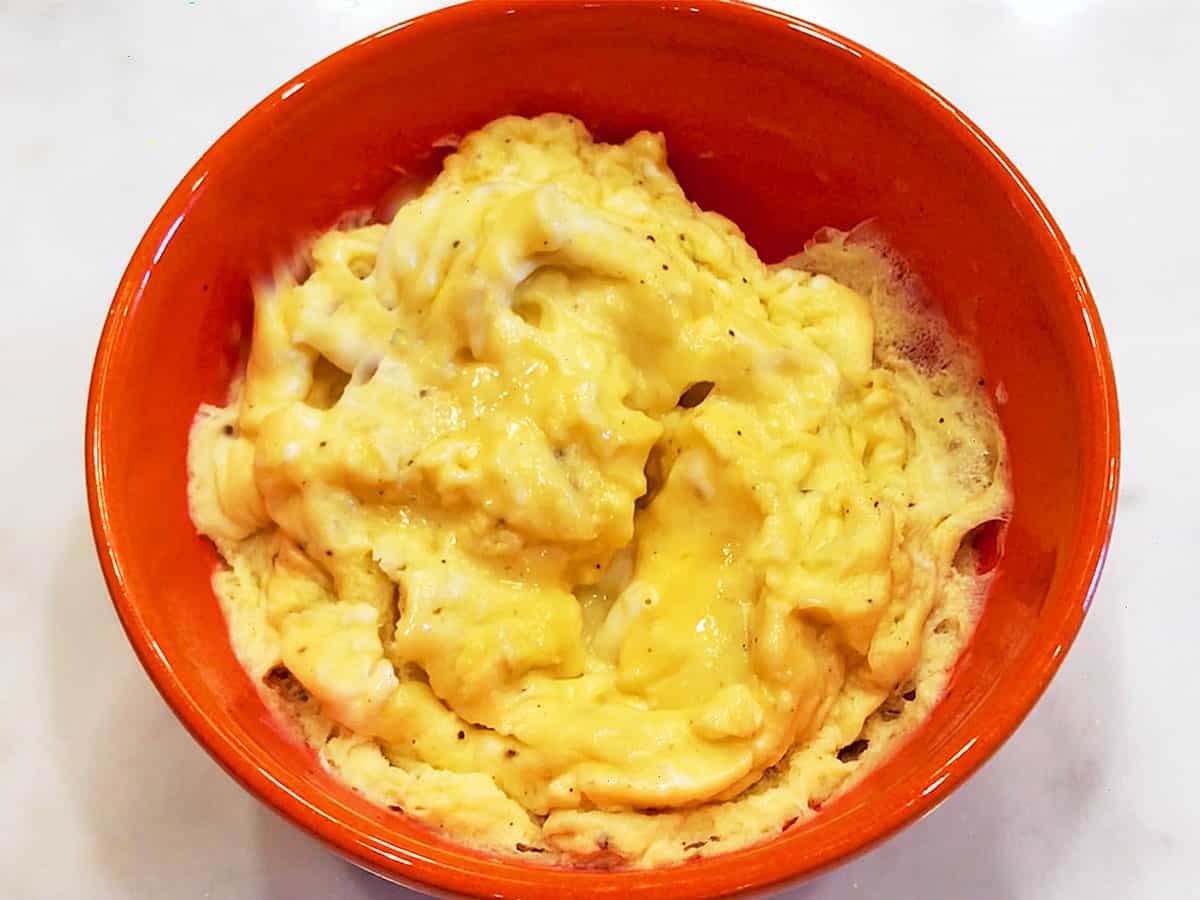
Follow the instructions and you will have the best microwave eggs! I added 30 seconds more, came out perfect!
Craig Broeker
Read more comments
Recipe Tips
Add Plenty of Salt
Scrambled eggs can be bland, so don't skimp on the salt. A full ¼ teaspoon of Diamond Crystal Kosher Salt is perfect. But if you're using any other salt, you should use just a (generous) pinch to prevent the eggs from being too salty. Here's how Diamond Crystal differs from other salts.
Microwave Ovens Vary
This recipe was written for the average microwave wattage, which is around 1,000. If your microwave's wattage differs, you'll need to experiment with how long to cook the eggs and at what power level.
Make them Dry or Moist
You can make the eggs as moist or dry as you like. See the two photos below? In the first one, the eggs are moist, resembling the texture of soft-scrambled eggs. In the second, I cooked them for ten more seconds in the microwave, and they came out drier.
However, microwave scrambled eggs can become too dry if you're not careful. Remember, you leave them in a hot mug or bowl after they're done cooking. They will continue to cook after you remove them from the microwave, so it's better to slightly undercook than to overcook them.
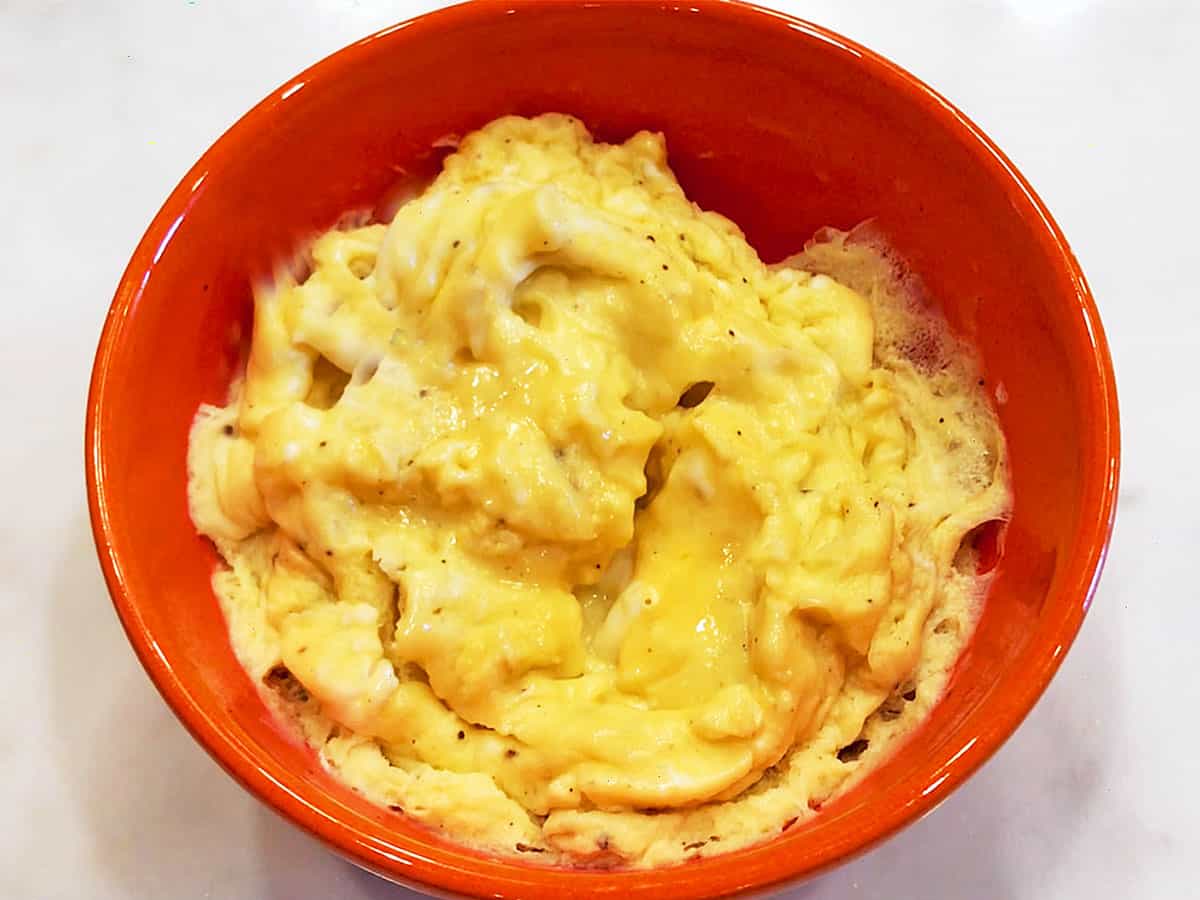
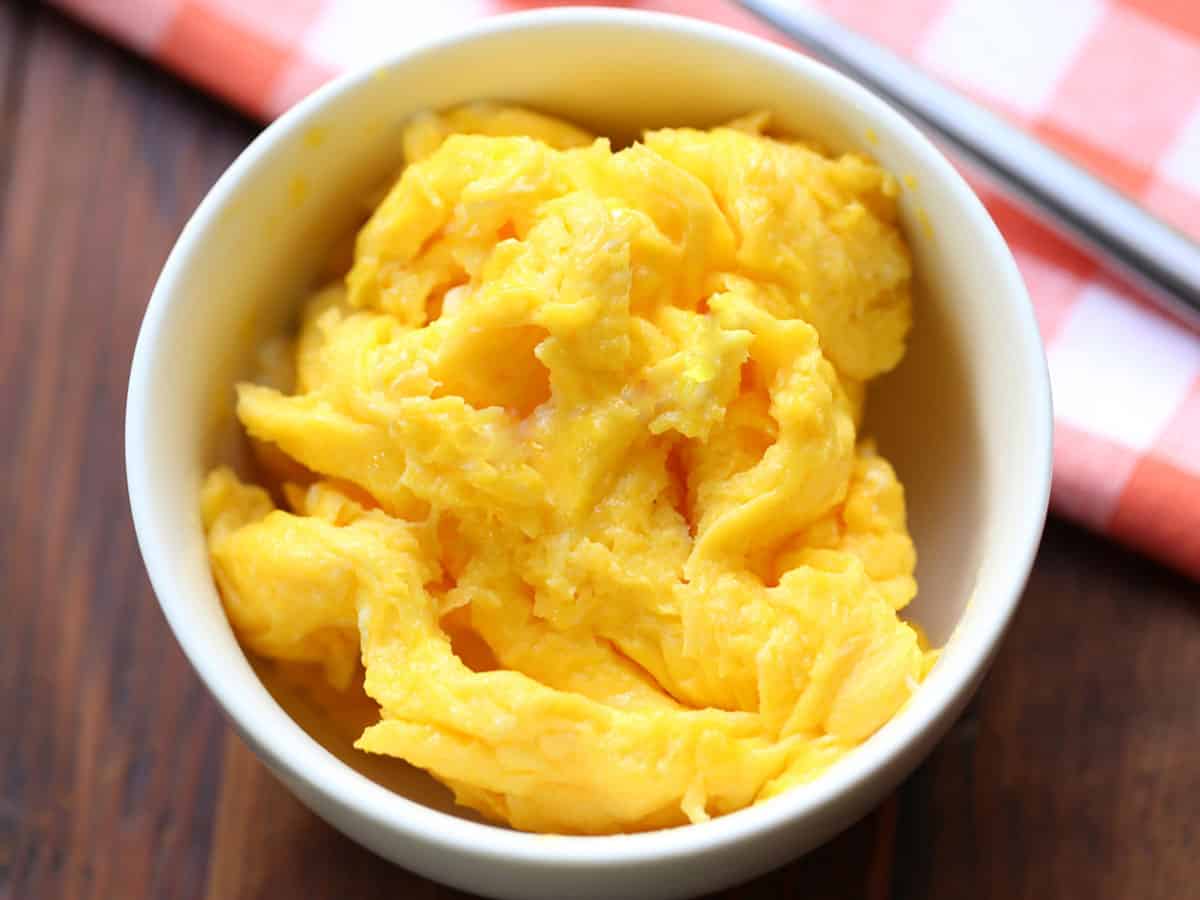
Stir The Eggs Midway
Even if you don't add cheese, I recommend stirring the eggs after the first 45 seconds. It helps them cook more evenly. If you don't stir them, they tend to collapse in the middle, as shown in the image below:
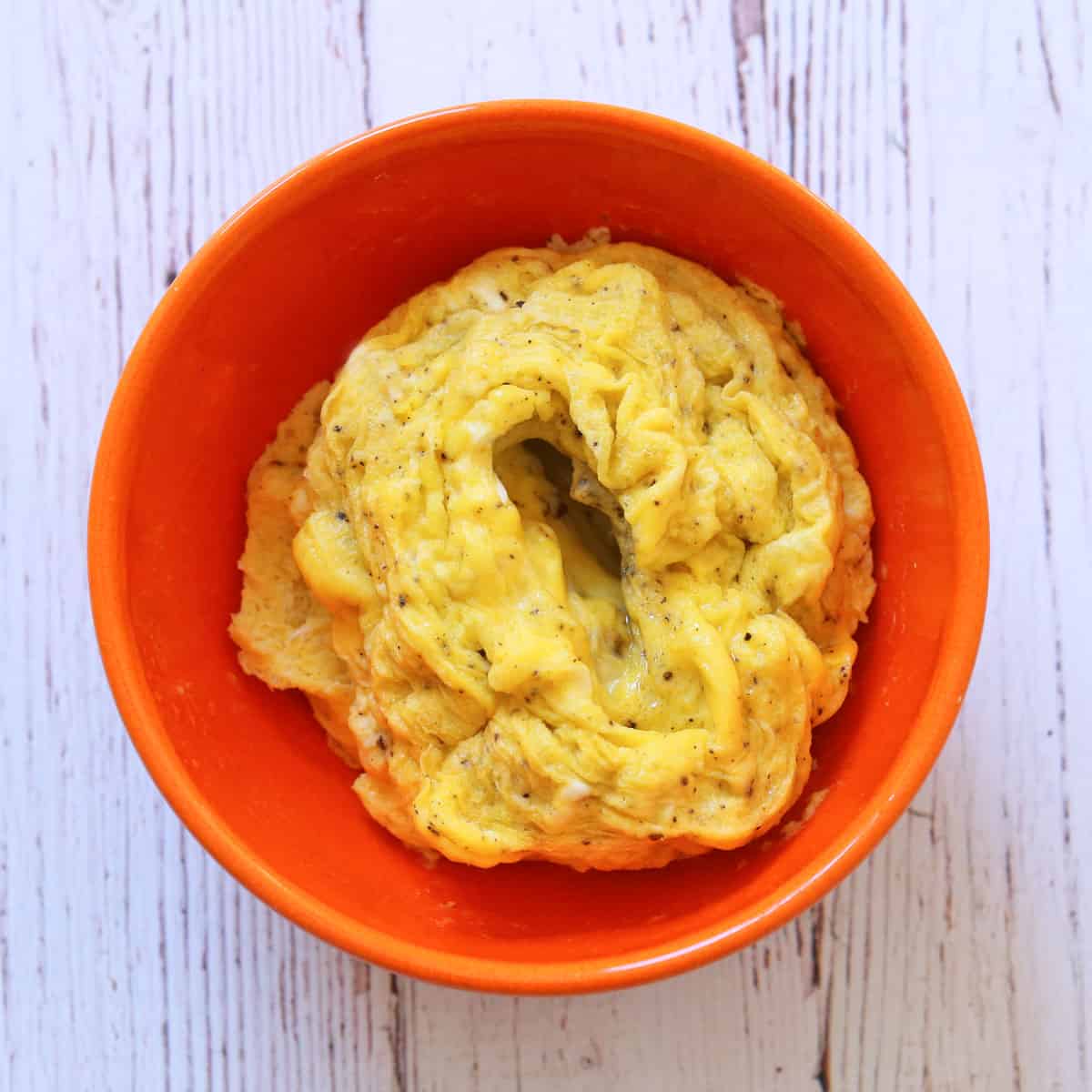
However, even if this happens, you can gently release them from the bowl and flip them to make them look prettier:
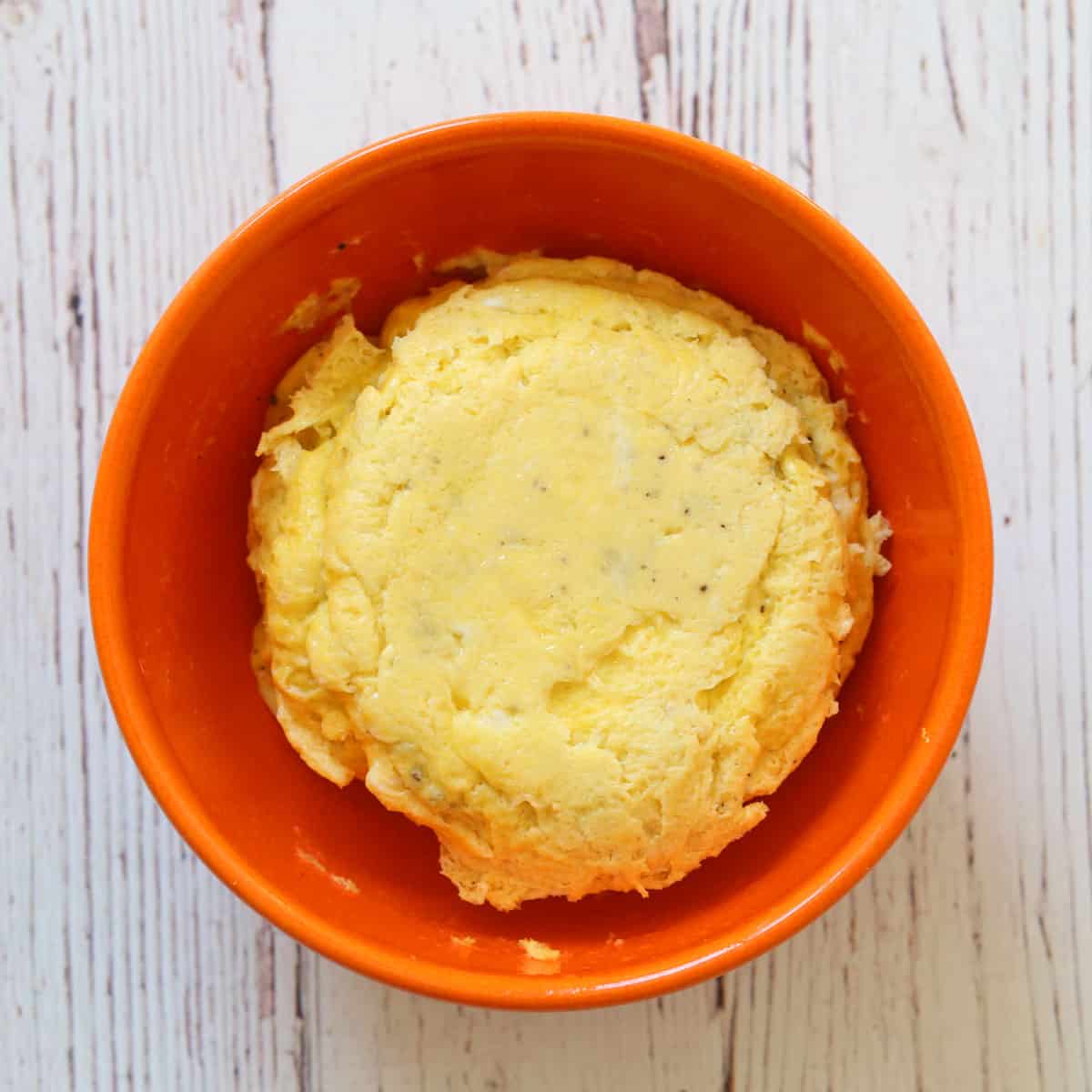
Recipe FAQs
You can replace the milk with an equal amount of half-and-half or heavy cream. For a dairy-free option, I recommend using thick and creamy dairy-free milk such as unsweetened soymilk or plant-based heavy cream. Almond milk is too thin and watery.
The cheese is an optional ingredient, but it's highly recommended. It adds an additional layer of savoriness and also improves and thickens the eggs' texture.
Yes! How fortunate you are to have access to them. You can use two duck eggs in this recipe.
If the eggs are fully cooked, you can keep the leftovers in an airtight container in the fridge for up to four days. Reheat them gently, covered, in the microwave at 50% power. I don't recommend freezing these eggs.
Serving Suggestions
I typically serve these eggs for breakfast with berries or sliced tomatoes. I sometimes add microwave bacon, as shown in the image below. These eggs are also delicious on thick slices of buttered almond flour bread or toasted 90-second bread.
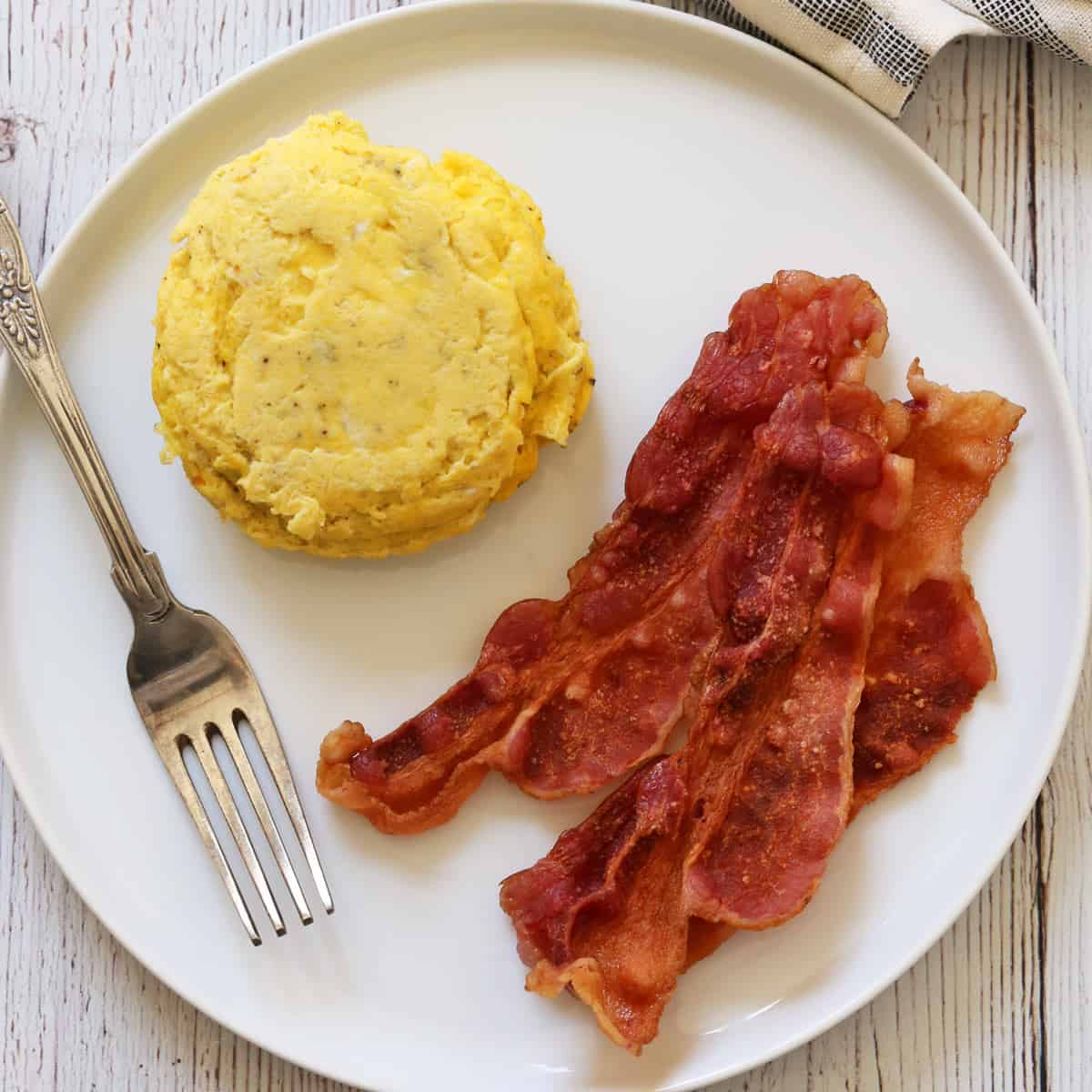
Recipe Card
Fluffy Microwave Scrambled Eggs
Video
Ingredients
- 1 teaspoon butter
- 3 large eggs
- 1 tablespoon whole milk - or heavy cream
- Pinch sea salt
- Pinch black pepper
- ¼ cup cheddar cheese - sharp, shredded, optional but good
Instructions
- In a small microwave-safe bowl, microwave the butter until melted, for about 30 seconds. Brush it all over the bowl.
- Break the eggs into the bowl. Add the milk, salt, and pepper.
- Whisk to combine.
- Microwave the eggs, uncovered, for 45 seconds.
- Gently stir the eggs with a fork, then stir in the cheese, if using.
- Microwave until fluffy and set but not completely dry, about 45 more seconds. Serve immediately.
Notes
- You lose some amount of control when using the microwave. Cooking on the stove lets you cook low and slow, ensuring fluffy and moist eggs. Microwave eggs can end up too dry if you're not careful. So it's best to slightly undercook them than to overcook them. Remember, you leave them in a hot mug or bowl after they're done cooking; they will continue to cook after you remove them from the microwave. You can always add 10 more seconds in the microwave if they are too moist for your liking.
- Even if you don't add cheese, I recommend stirring the eggs after the first 45 seconds. It helps them cook more evenly.
- This recipe was written for the average microwave wattage, around 1,000. If your microwave's wattage differs, experiment with how long to cook the eggs and at what power level.
- If the eggs are fully cooked, you can keep the leftovers in an airtight container in the fridge for up to 4 days. Reheat them gently, covered, in the microwave at 50% power. I don't recommend freezing these eggs.
Nutrition per Serving
Save this Recipe!
We will also add you to our weekly newsletter. Unsubscribe anytime. See healthyrecipesblogs.com/privacy/ to learn how we use your email.
Disclaimers
Most recipes are low-carb and gluten-free, but some are not. Recommended and linked products are not guaranteed to be gluten-free. Nutrition info is approximate. Please verify it independently. The carb count excludes non-nutritive sweeteners. Please read these Terms of Use before using any of my recipes.


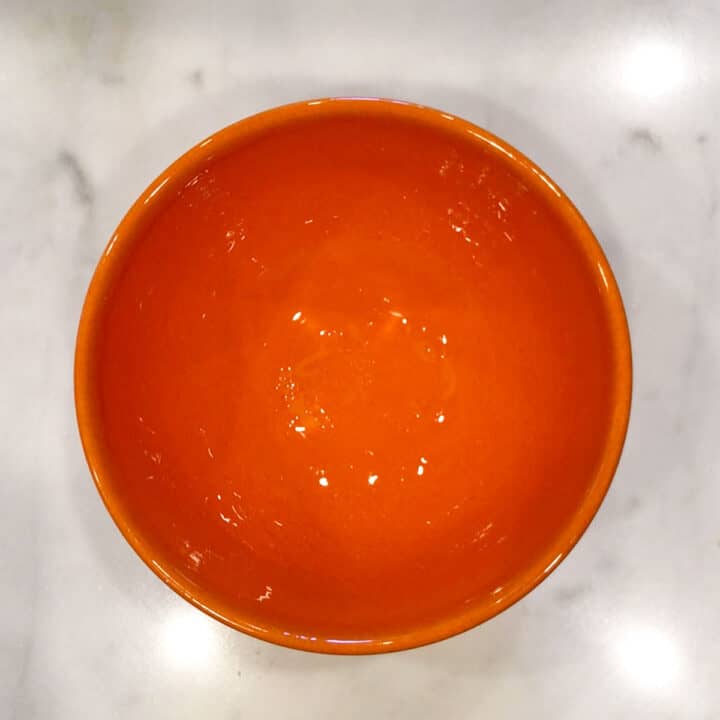
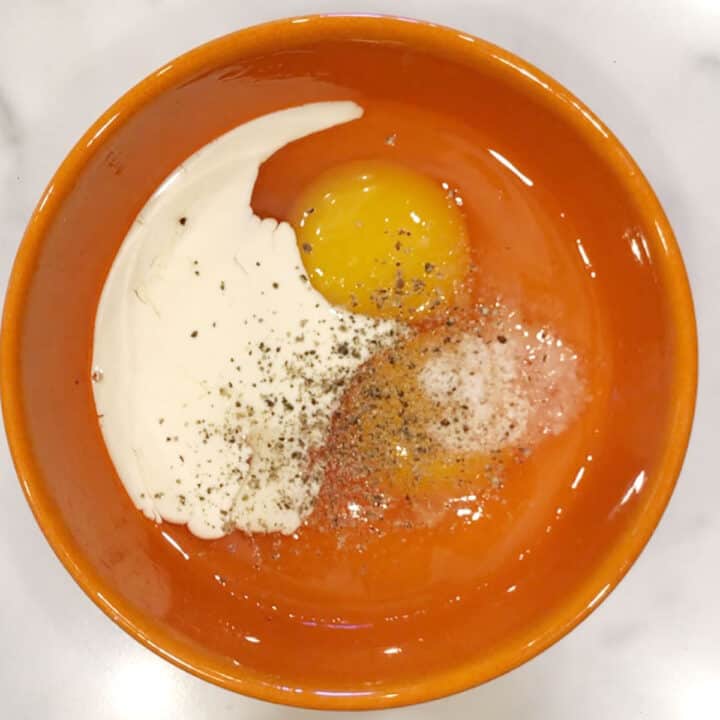
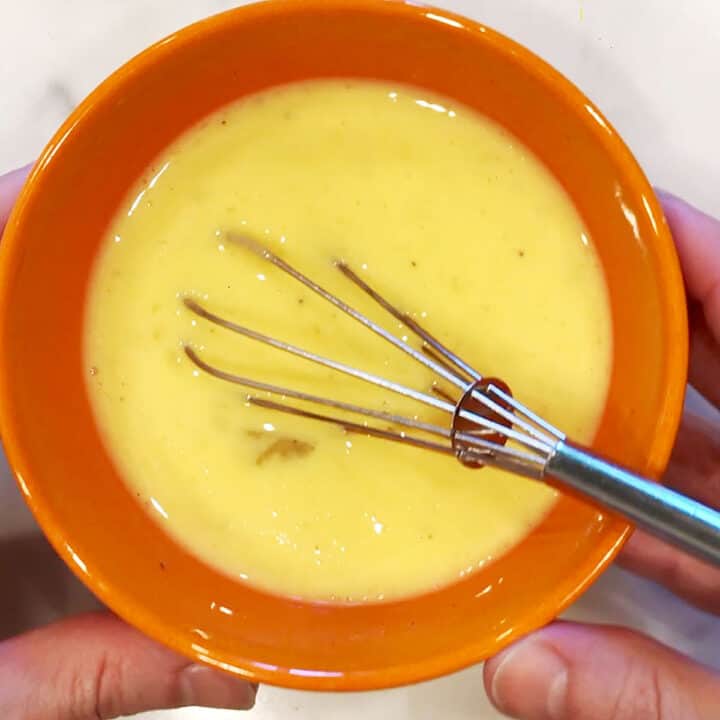
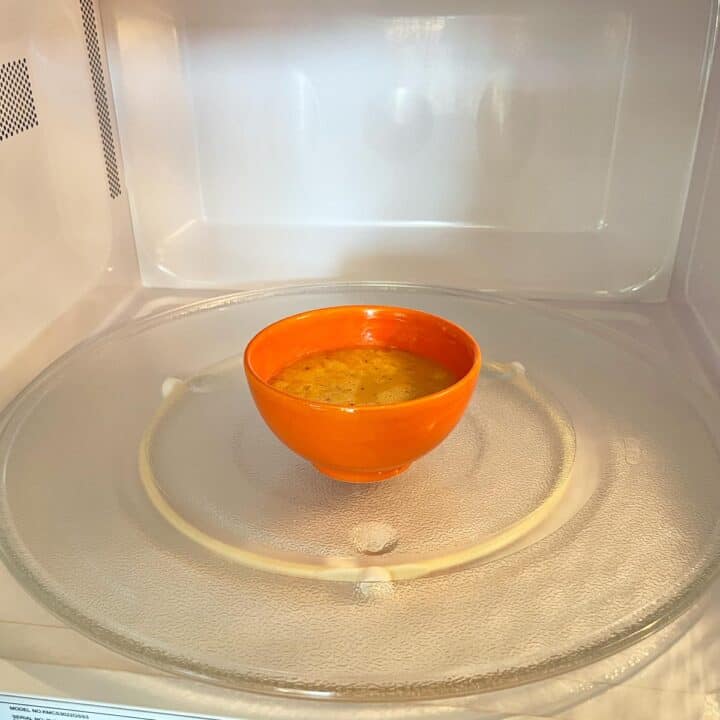
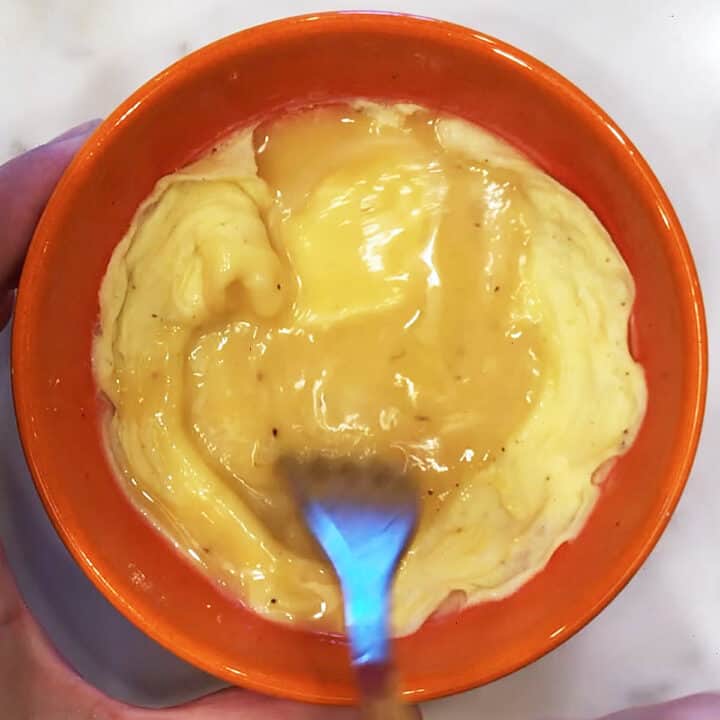
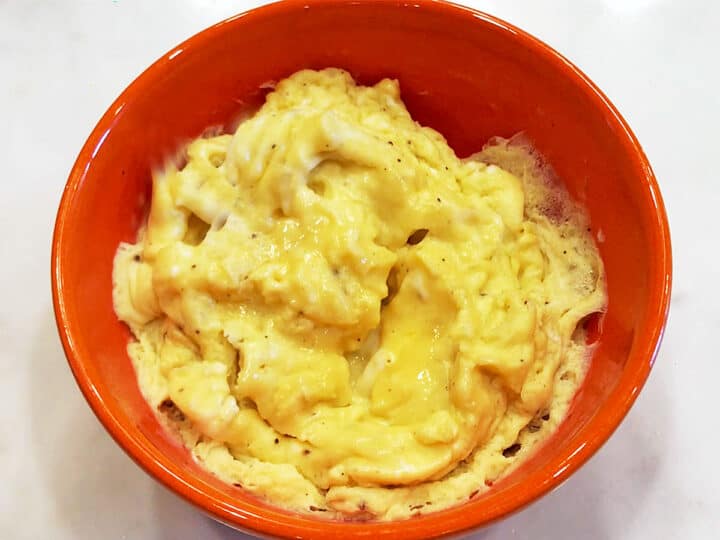
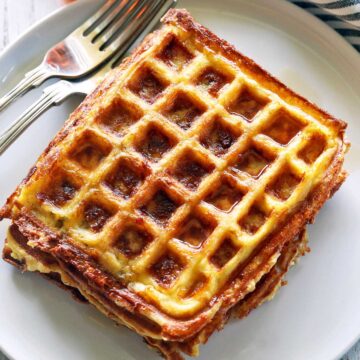



Rena says
These eggs came out so delicious and fluffy! I have made them 3 days in a row because they are so quick and easy to do AND my toddler loves them!
Vered DeLeeuw says
Wonderful, Rena! I'm so glad you and your child like these eggs. Thank you very much for the review.
Bruce Grey says
Excellent!!
Christine says
These eggs were delicious!! Perfect
Vered DeLeeuw says
I'm so glad yuo enjoyed them, Christine! Thank you for leaving a comment.
Craig Broeker says
Follow the instructions and you will have the best microwave eggs! I added 30 seconds more, came out perfect!
Vered DeLeeuw says
Yay! I'm so glad this recipe worked for you, Craig! Thank you for leaving a comment.